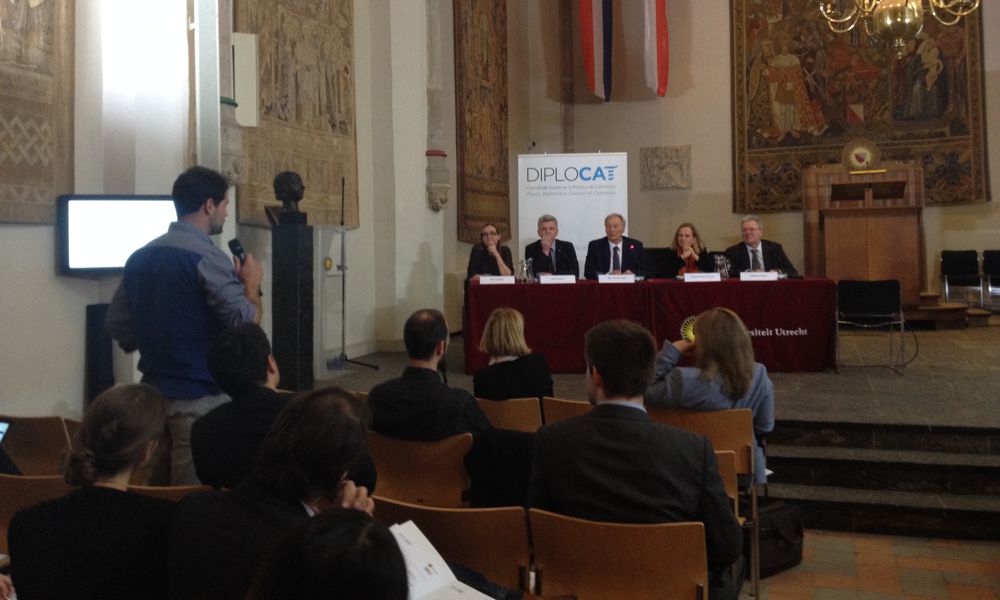08.04.2014 - 10:42
European politicians participating in the round table on self-determination processes in the EU have reached a clear consensus: the right to self-determination is a basic human right and if a majority of the Catalan population wants to hold a referendum on independence, this referendum should take place. Recent opinion polls show that over 80% of Catalans want a self-determination referendum and 60% would vote in favor of an independent state. Rob van der Vaart, dean of University College Utrecht, moderated the round table debate with Lousewies van der Laan, Dutch politician and vice-president of The Alliance of Liberals and Democrats for Europe party (ALDE group), Stéphane Riand, member of the Sion General Council for the Swiss socialist party, Bodil Ceballos, Swedish MP for the Green Party and candidate for the European Parliament (Green/ALE group), and Veiko Spolitis, member of the Unity Party (EPP group), former Parliamentary Secretary of the Latvian Ministry of Defense.
Veiko Spolitis said that “self-determination of Catalans should not be questioned in the 21st century in Europe: there will be a referendum. It is an important matter and it has nothing to do with Crimea.” According to him, if there would have been a Catalan national soccer team, for example, this would have eased Catalan independentism. For Stéphane Riand, “the issue of Catalonia must not be treated as a taboo, neither in the EU nor in Switzerland, as Spain wants”. Riand considers that the right of self-determination is a basic human right and citizens have the right to choose their institutions.
Lousewies van der Laan recalled that Slovenia has only been independent for 20 years, but they have considered themselves a nation for centuries. She has nothing against self-determination processes, as long as they are peaceful and show respect for human rights. Van der Laan also considered that the strategy from the Spanish Government is not going in the right direction: “If someone comes to you and says they are not happy, you have to sit down and listen. Look at Scotland and the UK! My advice to the Government in Madrid: if you want Catalans to stay in Spain, you have to listen to them and show them charm and love.”
Finally, Bodil Ceballos used Sweden as an example: “We in Sweden let Norway go peacefully more than 100 years ago and now we are very good friends.” From the Catalan process, she underlined the inclusive side of it: “It is very easy to be included in Catalan society, this is why many immigrants are in favor of independence.” On the question of whether an independent Catalonia should remain in the EU, Ceballos advocates that the EU “should make things easier in these cases, not more difficult.”
The debate opened with a welcome from the University dean and greetings by Albert Royo, Secretary General of the Public Diplomacy Council of Catalonia. The academic part of the conference included presentations by Clara Ponsatí, research professor at the Institute of Economic Analysis of Barcelona and at the Barcelona Graduate School of Economics, and Eduard Sagarra, professor of International Law at Barcelona University and president of the United Nations Association of Spain (ANUE), who have related the recent developments in the socio-political process currently going on in Catalonia. Miquel Calçada, Catalan journalist and 1714 Tercentenary Commemoration director, and Francesco Maiolo, from University College Utrecht, closed the act.



